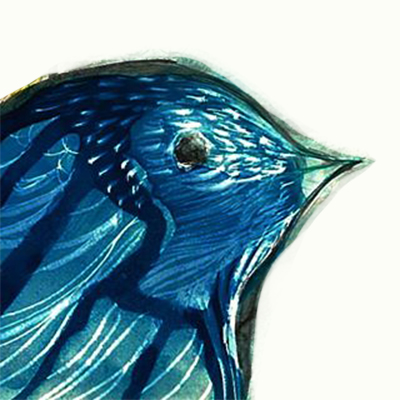Milan Kundera says we all have a kitsch image deeply rooted in us, regardless of how anti-kitsch we are. That’s not a problem in my case because there’s nothing anti-kitsch about me and my private list of deep-rooted kitsch images is very long. The most powerful ones have to do with my family. I can’t help it.
An unmarked house in an unpaved road. Loquat trees, a hearth, the sound of trains, an opossum that lived in the attic and scared our visitors. A grey, yellow-eyed cat. A beetle-green VW. A black gate. An orange hammock.
Falkor, our first dog (rescued from the street, like all our subsequent pets). We never managed to fix his fur, so until the end of his life he fashioned dreadlocks all the way to the ground that sounded like a bunch of brooms sweeping the floor as he walked. I remember more clearly than a million other things the sound Falkor made moving around, with his soft paws, and the dreadlocks brushing the floor. It’s the sound of an unmitigated sweetness, just clean sweetness and nothing else. His face was identical to the dragon in The Neverending Story, and his character was very shy. But Falkor was brave. He was the protagonist of a fight with two bull terriers who came to challenge our home’s territory. Falkor, a tiny white mass of dreadlocks, darted into the street to defend us. He was taking a beating but in a display of courage that stayed in our family legendary records, our grey cat joined Falkor in battle and between the two of them they expelled the attackers.
Falkor died of cancer and now he is buried in one of my most kitsch territories, the mountain we called “Estribo Chico”, in Patzcuaro.
This is the image: It’s a Saturday or a Sunday, my sister and I walk behind the serene silhouette of my dad, through red clay trails, into the forest. My dad is very tall, and slim, he takes long, rhythmic strides (we take many quick short steps to keep up with him). He wears flannel shirts, modest mountain boots, jeans. My dad has very rarely, and only if forced to, worn a tie. He walks like a samurai, he moves economically, in silence. His back is straight, and he carries his arms and hands close to his body. He doesn’t slip, or bump into things, he doesn’t get scratched by branches or thorns. He moves with elegance through the forest. Deep down, the forest is his natural element. He can cut through the mountain outside the trail without getting lost. He can walk for many hours, hike steep climbs without taking a break, without cracking the steady cadence of his breathing. We walk in silence, talk and laugh for a moment and then go back to the silence. I never managed to be like him, I was and still am an ungainly figure in the forest, who gets out of breath, stops, gets distracted. But the goal still is to walk like him, to be a slender, silent figure who lets the forest be present at all times.
The silent image of my dad includes a deep, sweet gaze. I doubt he realizes how kind his eyes can be, because he is indeed an anti-kitsch person with an intelligent, skeptical spirit and a dark, acerbic humor. He only looks in the mirror for practical reasons, to shave and run a comb through his wet hair once or twice and that’s it. But his eyes are at times very sweet, as evidence of a heart that doesn’t realize its own immensity.
I guess deep down, I’ve always tried to walk like him. I remember looking at both our shadows over the sand, on the beach. Two long silhouettes, moving with the hands close to the body and a slight inclination of our torsos to the right, as if we were both walking on an imaginary unevenness.
Among the images that repeat themselves over and over in my dreams, there’s often the protective sensation of the forest.

